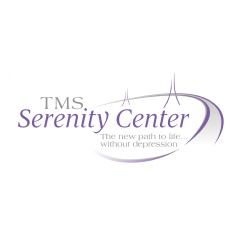Transcranial Magnetic Stimulation (TMS) Proves Long Duration of Clinical Benefit in Major Depressive Disorder (MDD)
Major Depressive Disorder (MDD) affects approximately over 16.2 million American adults each year and more than 30 percent of those who seek treatment do not receive adequate treatment for this condition from medications alone. Fortunately, Transcranial Magnetic Stimulation (TMS) Therapy is an alternative, non-drug treatment option for patients still suffering despite medications and offers results from this study.
72.4 percent of patients suffering from Major Depressive Disorder who were treated with TMS therapy achieved complete remission from their depressive symptoms and have an eight-in-ten chance of staying well over four years.
In a recent study titled “Treatment of Unipolar, Non-Psychotic Major Depressive Disorder with Transcranial Magnetic Stimulation: A Retrospective Evaluation Examining Acute and Long-Term Efficacy of TMS During Routine Clinical Practice” presented at the American Psychiatric Association (APA) Annual Meeting in Atlanta, Georgia by Dr. Kimberly Cress, TMS Serenity Center of Sugar Land, Texas demonstrated that individuals suffering from MDD who were treated with TMS Therapy, 72.4 percent achieved remission of their depressive symptoms. These findings are in a patient population with an average of 3.9 failed antidepressant medications in the current episode, indicating a treatment-resistant population. Moreover, the data also showed that those patients who achieved remission from their depression through TMS Therapy had an eight in 10 (80 percent) chance of maintaining remission at over four years.
“These results are very promising,” said Kimberly Cress, MD, Psychiatrist and Medical Director at the TMS Serenity Center. “Current treatment options are limited for those patients who are still suffering despite multiple medication trials. We want our patients to achieve remission and stay well, and our findings support TMS as a treatment option with a long duration of clinical benefit” Cress said.
In this study, 123 patients with unipolar, non-psychotic MDD who had failed to receive benefit from prior antidepressant treatment were given TMS therapy using the NeuroStar TMS Therapy System (Neuronetics, Inc., Malvern, PA, USA). Patients were treated daily (five days a week for approximately four to six weeks) with a range of 1,600 to 4,600 pulses delivered to either the LDLPFC, RDLPFC or Bilaterally. The study’s primary outcome of interest was the change in depressive symptoms utilizing the Beck Depressive Inventory Scale (BDI II). The mean baseline score was 25.6, indicating moderate depression with a mean end point score of 10.2 by the end of the study, indicating remission. Overall, 89 out of the 123 patients (72.4 percent) achieved remission of symptoms during acute treatment. There were no serious adverse events reported.
From this patient population, 10 patients who achieved remission in the acute phase of TMS were evaluated over the course of four years, with over 80.0 percent of patients maintaining remission from their depression.
This study supports the benefits of using Transcranial Magnetic Stimulation (TMS) for treatment-resistant depression cases such as Major Depressive Disorder (MDD) affecting 16.2 million American adults.
About TMS Therapy and the TMS Serenity Center:
TMS Therapy is currently indicated for the treatment of Major Depressive Disorder in adult patients who have failed to receive satisfactory improvement from antidepressant medication in the current episode. TMS Therapy is a non-systemic and non-invasive form of neuromodulation. It stimulates nerve cells in the brain by delivering highly focused MRI-strength magnetic field pulses which lead to activation of cortical and deep brain structures known to be involved in mood regulation. The first TMS Therapy device, NeuroStar TMS Therapy System, was FDA-cleared in 2008 on the basis of the largest randomized controlled trial evaluating TMS in depression. The TMS Serenity Center has performed over 10,000 treatments since April of 2010.
( Press Release Image: https://photos.webwire.com/prmedia/55128/203351/203351-1.png )
WebWireID203351
- Contact Information
- Kerstin Brown
- Communications Director
- TMS Serenity Center
- (1) 281.240.4322
- kerstin@kimcress.com
This news content may be integrated into any legitimate news gathering and publishing effort. Linking is permitted.
News Release Distribution and Press Release Distribution Services Provided by WebWire.
